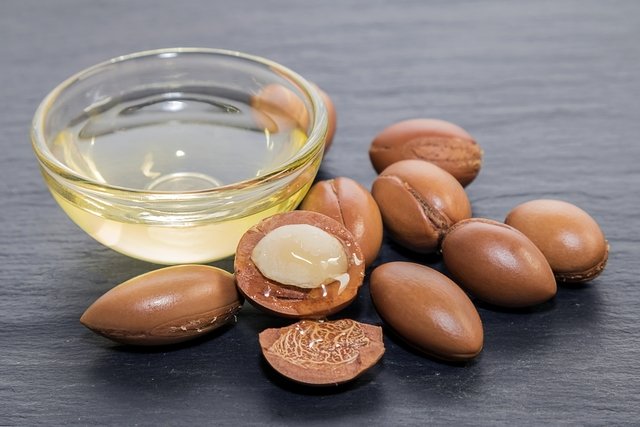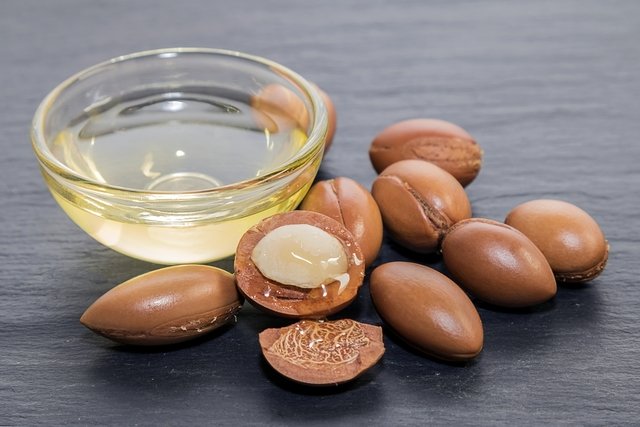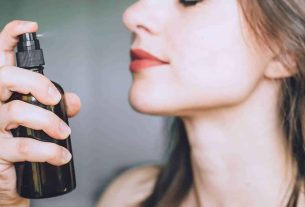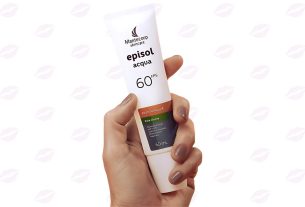Argan oil is an oil extracted from the fruits of the tree Argania Spinosa and provides many health benefits, such as preventing premature aging, moisturizing hair and skin, and helping wound healing.
Although it is less common, argan oil can also be ingested and helps prevent cardiovascular problems, such as atherosclerosis and heart attack, for example, because it is rich in omega 3, 6 and 9, which are unsaturated fatty acids with antioxidant and anti-inflammatory properties. inflammatory.
Argan oil can be found in pharmacies and health food stores, pure, or added to products such as body moisturizers, creams, conditioners and hair masks.

What is it for
Argan oil can be used for:
1. Maintain hair health
Argan oil is rich in vitamin E and fatty acids, nutrients that act on the structure of hair strands, leaving them soft, shiny, hydrated and frizz-free. Therefore, this oil is a great option for protecting hair against damage caused by chemicals or heat treatments. Discover other oils recommended for hair.
2. Moisturize your skin
When applied to the skin, argan oil maintains the skin’s natural protective barrier, reducing water outflow and thus promoting skin hydration.
Furthermore, ingesting argan oil also improves skin hydration and can be used to alleviate dry skin.
3. Promote healing
Because it has excellent amounts of polyphenols, vitamin E and unsaturated fatty acids, argan oil can promote wound healing. Check out other natural healing agents.
Furthermore, due to its healing and anti-inflammatory action, argan oil can also help in the treatment of burns, eczema and psoriasis.
4. Prevent premature aging
Argan oil contains vitamin E and polyphenols with antioxidant properties, which protect the skin against damage caused by free radicals, preventing the formation of wrinkles and premature aging.
Furthermore, argan oil also improves elasticity, preventing sagging skin.
5. Help with acne treatment
As it has anti-inflammatory action, argan oil reduces skin irritation and redness, helping to treat acne, or pimples. See other treatment options for pimples.
Argan oil also keeps the skin hydrated, controlling the production of sebum, an oily substance produced by the skin that, when in excess, blocks the pores, causing acne.
6. Prevent cardiovascular diseases
Being rich in Vitamin E and omega 3, 6 and 9, nutrients and healthy fats with anti-inflammatory action, argan oil, when ingested, promotes the health of the arteries and prevents the formation of clots, preventing cardiovascular diseases such as heart attack, blood pressure high blood pressure and atherosclerosis.
Furthermore, ingesting argan oil also helps control the levels of “bad” cholesterol, LDL, and triglycerides in the blood, as it has an antioxidant action, preventing the oxidation of fat cells by free radicals.
How to use
Argan oil can be used for several purposes:
- To hydrate hair: Add a few drops of argan oil to hair masks and apply the mixture to wet, clean hair, leaving it to act for 15 minutes. Then wash with shampoo to thoroughly remove mask residue;
- To reduce frizz in your hair: With clean strands, put a few drops of argan oil in your hands and apply it to the ends of your hair with your fingers;
- To hydrate the first: With clean skin, drip three to five drops of this pure oil onto the skin of your body or face, massaging well.
Furthermore, argan oil can also be ingested cold to prepare sauces or season salads, cooked vegetables and breads, for example. In this case, it is important to always look for argan oil that has the definition of “edible argan oil” or “argan oil for culinary use”.
Possible side effects
Possible side effects of using argan oil on the skin are irritation, dermatitis and acne. When ingested, argan oil can cause nausea, gas, diarrhea, loss of appetite or bloating.
When applied to the hair roots, argan oil can increase oiliness, causing dandruff, especially in people with oily hair.
Who shouldn’t use
Pregnant or breastfeeding women should always consult their doctor before ingesting argan oil, as there are still no studies proving the safety of consuming this oil in these situations.

Sign up for our newsletter and stay up to date with exclusive news
that can transform your routine!
Warning: Undefined array key "title" in /home/storelat/public_html/wp-content/plugins/link-whisper-premium/templates/frontend/related-posts.php on line 12
Warning: Undefined array key "title_tag" in /home/storelat/public_html/wp-content/plugins/link-whisper-premium/templates/frontend/related-posts.php on line 13




